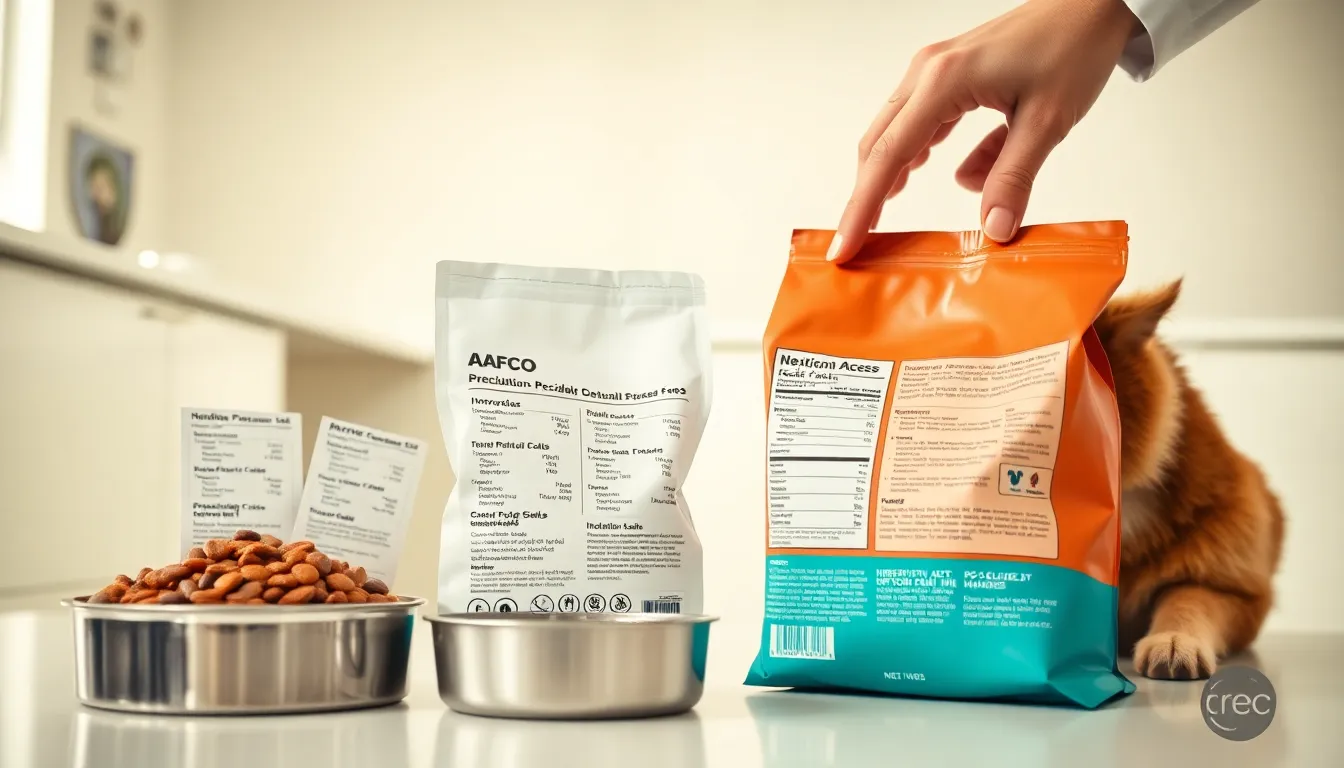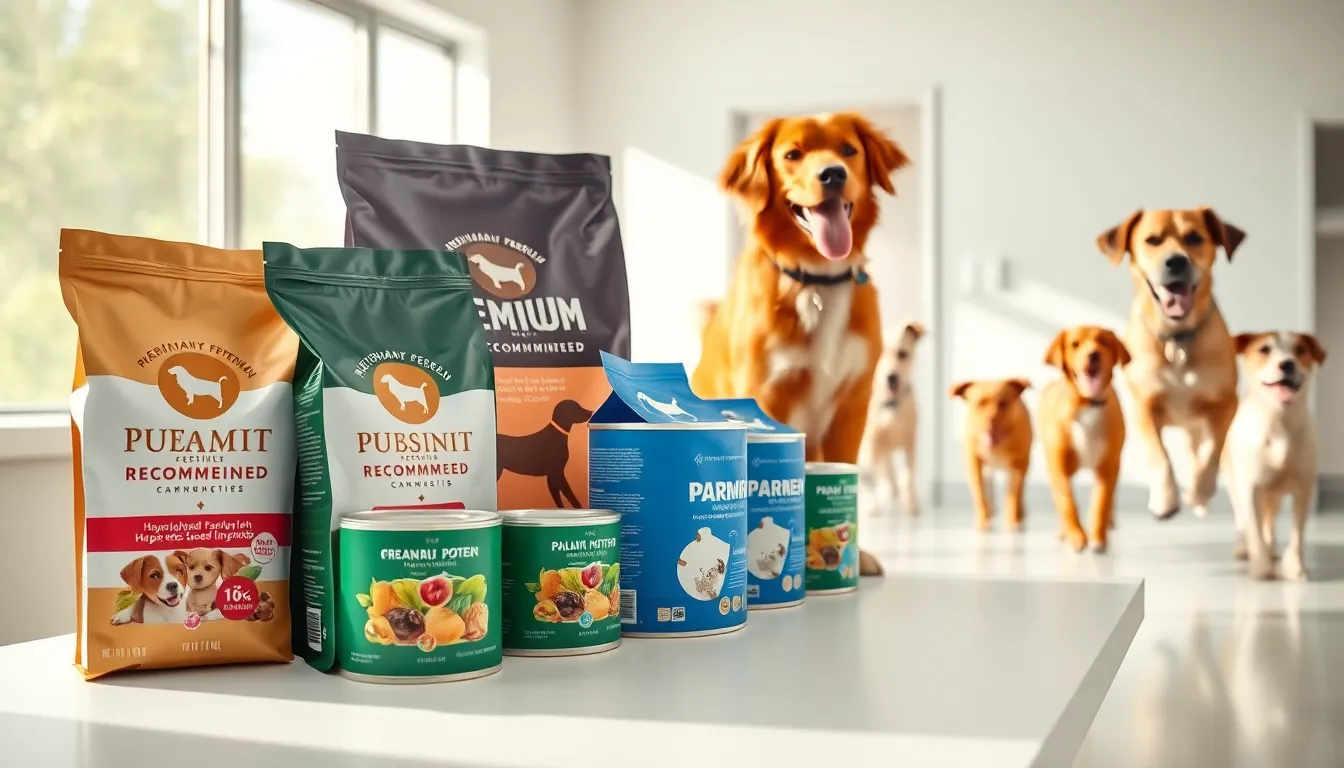Navigating How to find a dog food if your pet has allergies demands a targeted approach to managing immune responses to specific proteins. Specialized diets, such as hydrolyzed or novel protein formulations, are essential for alleviating discomfort, enhancing skin health, and ensuring overall pet well-being.
Key Implications
- Advanced Protein Management: Specialized diets utilizing hydrolyzed proteins or novel protein sources effectively prevent allergic immune reactions by either breaking down common allergens into unrecognizable fragments or introducing unfamiliar protein types.
- Comprehensive Allergen Control: Meticulous label scrutiny, understanding potential cross-reactivity among ingredients, and ensuring manufacturing purity are critical steps to eliminate known allergens and prevent accidental exposure from hidden components or cross-contamination.
- Veterinary Guidance and Skin Health: Consulting a veterinarian is essential for diagnosing specific sensitivities and selecting AAFCO-compliant prescription diets, which, when combined with fatty acid-enriched formulas, support a robust skin barrier and overall dermatological well-being.

Hydrolyzed Proteins and Novel Sources Reduce Allergic Immune Reactions
Managing canine food allergies begins with understanding their biological origins. A dog’s immune system often misidentifies specific food proteins as threats. This triggers an allergic response (Dr. Cherie Pucheu-Haston). This immune overreaction causes common symptoms like itching, skin inflammation, and gastrointestinal upset. Learning finding specific dog food for allergies involves targeting these protein reactions directly. Specialized diets are essential for alleviating discomfort and improving overall pet health.
Eliminating known allergens from a dog’s diet is critical. Many traditional dog foods contain common proteins like chicken or beef. These are frequently responsible for adverse immune responses. Selecting appropriate dietary strategies prevents the immune system from launching attacks. This careful dietary management significantly reduces allergic reactions. It improves outcomes over time.
Advanced Protein Management for Allergy Relief
Hydrolyzed protein diets offer a highly effective solution. These diets process proteins through hydrolysis. This breaks down large protein molecules into very small, amino acid-sized fragments. The immune system then struggles to recognize them as allergens. This significantly reduces the likelihood of an immune response. Pets can consume these diets without triggering their usual allergic symptoms.
Veterinary dermatologists frequently recommend hydrolyzed diets for diagnosis and long-term management. These diets are often used during an elimination trial. They help pinpoint specific food sensitivities. This approach minimizes immune system reactivity. It allows a dog’s body to heal and recover from persistent inflammation. Choosing the right diet is a cornerstone of allergy treatment.
Novel protein diets present another valuable strategy. They introduce protein sources a dog has never encountered before. Common novel proteins include rabbit, kangaroo, or alligator (Dr. Susan Paterson). Since the dog’s immune system has no prior exposure, it has not developed antibodies against these proteins. This prevents an allergic reaction from occurring. These diets effectively manage allergies when specific triggers are known.
- Identify unique protein sources your dog has never eaten before.
- Ensure the diet uses a single, pure novel protein to avoid cross-contamination.
- Monitor your dog closely for symptom improvement during the diet trial.
- Consult a veterinary professional to select the most appropriate novel protein.
- Avoid feeding people foods to avoid for pets, as these often contain hidden allergens.
- Gradually transition to the new diet over several days to prevent digestive upset.
Enhancing Skin Health with Fatty Acid-Enriched Formulas
Beyond protein management, specific fatty acids play a crucial role in allergy relief. Diets enriched with certain fatty acids are proven to reduce inflammation (Dr. Susan Paterson). These beneficial fats, particularly omega-3s, help soothe irritated skin. They actively work to mitigate the body’s inflammatory responses.
Fatty acid supplementation also enhances skin health. It strengthens the skin barrier function. A robust skin barrier prevents environmental allergens from penetrating and causing irritation. This is especially important for dogs suffering from atopic dermatitis. Improved skin integrity means less itching and discomfort for the pet. Skin barrier reinforcement is vital for long-term comfort.
These specialized diets support overall dermatological well-being. They provide essential nutrients for a healthy coat and skin. Consistent intake of these beneficial fats can significantly reduce symptom severity. For pets with ongoing allergy concerns, combining protein management with fatty acid-rich foods offers comprehensive support. This dual approach provides foundational relief and lasting benefits for allergic dogs.
As of 2024, veterinary science continually advances dietary solutions for canine allergies. Future trends anticipate even more personalized nutritional plans. Genetic testing may soon guide more precise dietary recommendations. Owners gain valuable tools to navigate their pet’s allergic conditions with informed choices.

AAFCO Standards and Manufacturing Purity Prevent Allergic Triggers
Managing canine allergies through diet is critical for pet well-being. This process requires a strategic approach. Owners must understand critical nutritional adequacy standards. Proactive measures against cross-contamination are also vital. This section details how to find a dog food if your pet has allergies effectively.
Successful dietary management hinges on several factors. Adhering to nutritional completeness standards is foundational. Minimizing all cross-contamination risks is paramount. Meticulously identifying specific food allergens forms the third pillar. This includes understanding the potential for cross-reactivity among ingredients.
Decoding AAFCO Labels for Allergen Safety
Selecting an appropriate dog food begins with label scrutiny. The AAFCO (Association of American Feed Control Officials) provides essential guidelines. These statements ensure that foods meet specific dietary requirements. Understanding these labels empowers pet owners to make informed choices. This knowledge is key for dogs with sensitivities.
AAFCO defines distinct nutritional claims for dog foods. A product labeled “complete” offers all required nutrients. These nutrients are specifically formulated for a particular life stage. Examples include growth, adult maintenance, or all life stages (AAFCO standards, current year).
A “balanced” food further ensures nutrients exist in correct proportions. This proper ratio supports optimal absorption and utilization. Always verify both “complete” and “balanced” on the label. This guarantees the food provides comprehensive, foundational health support. For example, puppies require different nutrient profiles than senior dogs.
Manufacturing integrity profoundly impacts allergen safety. Trace ingredient cross-contamination poses a significant hidden risk. Even minute amounts of an allergen can trigger severe reactions. This concern arises during processing and packaging. Pet owners must be aware of these potential pitfalls when seeking solutions for their pets.
Prescription veterinary diets offer the highest purity assurance. These specialized formulations are often produced on dedicated manufacturing lines. This greatly minimizes the probability of unintended allergen exposure (Dr. Paterson). Always consult your veterinarian for guidance on specific prescription options tailored to your dog’s needs.
Pinpointing specific food allergens is an essential, diagnostic step. Many common ingredients can provoke adverse reactions in sensitive dogs. These triggers range from specific protein sources to various food additives. A precise diagnosis from a qualified veterinarian is always the first recommendation.
Dr. Pucheu-Haston identifies frequently implicated protein allergens. Wheat, soy, chicken, dairy, and beef are among the most common culprits. Other protein sources like lamb or fish can also cause issues for certain breeds. Meticulous review of all ingredient lists becomes a daily necessity.
Beyond proteins, artificial flavorings, colorants, and preservatives often act as potential triggers. Dr. Paterson strongly advises pet owners to scrutinize these additives carefully. They can significantly exacerbate existing sensitivities or reactions. Opting for natural, limited-ingredient diets helps mitigate this risk.
Pet owners must also account for ingredient cross-reactivity. This means an allergy to one protein can extend to others with similar structures. Understanding this phenomenon is crucial for effective long-term management. It prevents unknowingly reintroducing problematic components into the diet.
A dog with a confirmed chicken allergy, for instance, may cross-react to other poultry. This includes pheasant, duck, and turkey, due to shared protein characteristics. Careful ingredient scrutiny is therefore essential across all poultry-based products. This vigilance helps prevent accidental exposure and recurring allergic symptoms.
Implementing an elimination diet remains the gold standard for diagnosis. This process involves feeding a novel protein or hydrolyzed diet exclusively. Systematically reintroducing individual ingredients then identifies specific culprits. Discussing people foods to avoid for pets with your vet is also important to prevent accidental triggers.
Managing canine allergies through diet demands unwavering vigilance and informed choices. It requires understanding regulatory labels, minimizing contamination, and recognizing cross-reactivity. This proactive, educated approach ensures your allergic pet can lead a comfortable life. Emerging trends (2024-2025) favor highly digestible, single-source protein formulas for sensitive canines.

Veterinary-Recommended Diets Offer Quantifiable Allergy Relief Options
Dogs with sensitivities require specialized nutrition. Learning how to find a dog food if your pet has allergies is essential for their health. Veterinary-recommended diets provide scientifically formulated solutions. These options include both prescription and over-the-counter formulas. They feature ingredients specifically chosen to reduce allergic responses effectively.
Such diets address various canine allergy needs. They offer relief through unique protein sources or highly digestible components. Understanding these specialized options empowers pet owners. It ensures dogs receive appropriate and beneficial nutrition.
Understanding Specialized Dietary Approaches
Allergy management often begins with dietary changes. Three primary approaches dominate veterinary recommendations. Each targets specific aspects of canine allergic reactions. Consulting with your veterinarian guides this crucial selection process.
Hydrolyzed protein diets break down proteins into tiny fragments. These small particles are less likely to trigger an immune response. They effectively bypass the allergen recognition system. This makes them ideal for dogs with severe food allergies. Common sources include hydrolyzed poultry.
Novel protein diets introduce protein sources unfamiliar to the dog’s immune system. This strategy minimizes previous exposure reactions. Alligator, venison, or duck are examples of novel proteins. They offer a fresh start for sensitive digestive systems. These diets require strict adherence to avoid cross-contamination.
Plant-based formulations offer an alternative for dogs sensitive to animal proteins. These diets derive nutrition from plant sources. They often include beneficial omega fatty acids. These fatty acids support skin and coat health, reducing irritation. Ensure the diet is complete and balanced for all essential nutrients.
Practical Examples of Allergy-Friendly Dog Foods
Many effective products are available under veterinary guidance. These options demonstrate the principles of specialized nutrition. They offer targeted relief for dogs with various sensitivities. Here are some examples:
- Royal Canin Adult Ultamino Dry Dog Food is a prescription diet. It uses highly hydrolyzed poultry proteins. An 8.8- or 19.8-pound bag costs $76.99. This formula supports the most sensitive dogs.
- Hill’s Prescription Diet z/d Skin/Food Sensitivities is a wet food. It features hydrolyzed chicken liver. A 12-pack of 5.5-ounce or 13-ounce cans sells for $67.99. This product has received 314 Amazon reviews, indicating its widespread use.
- Blue Buffalo Natural Veterinary Diet NP Novel Protein Alligator Dry Dog Food utilizes alligator as its primary novel protein source. This specialized dry food retails for $47.98. It provides a unique protein alternative for dogs with common meat allergies.
- Open Farm Kind Earth Premium Plant Kibble offers a plant-based option. It costs $19.99. This kibble provides plant-based omega fatty acids from flaxseed, sunflower, and coconut oil. These ingredients support skin health naturally.
- Blue Buffalo True Solutions Skin & Coat is an effective over-the-counter choice. It costs $68.38 on Amazon. Chewy lists it at $68.98, reflecting a 9% discount from its original $75.99 price. This popular product has garnered 1,143 Amazon reviews.
When selecting a diet, also consider ingredients to avoid. Many people foods to avoid for pets can trigger severe reactions. Always consult with your veterinarian before making significant dietary changes. They can recommend the best trial diet for your dog’s specific needs.
Source
NBCNews.com: “7 BEST FOODS FOR DOGS WITH ALLERGIES, ACCORDING TO VETERINARIANS”
